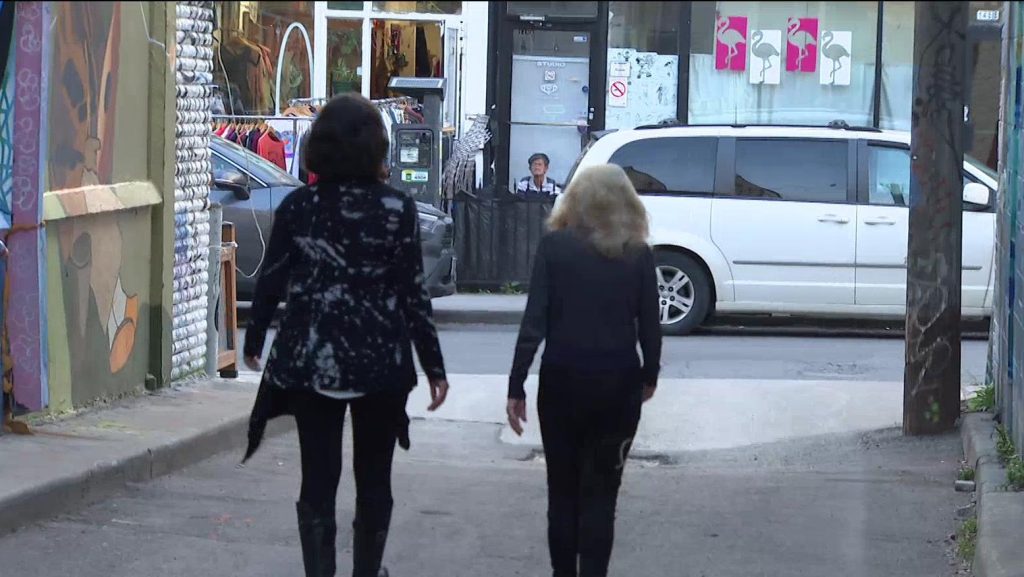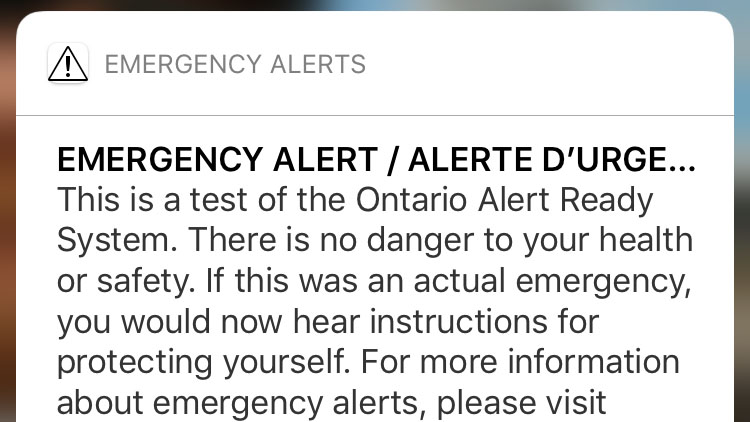New study shows some people with COVID-19 symptoms still go to work in Peel Region
Posted January 27, 2021 9:58 pm.
Last Updated January 28, 2021 4:58 pm.
A new study shows that some workers ignoring COVID-19 guidelines may be the reason Peel Region continues to be a COVID-19 hotspot.
Research conducted by Peel Public Health from August 2020 to January 2021 shows one-in-four employees went to work showing symptoms of the virus, and out of those workers, one per cent went to work after receiving a positive test for COVID-19.
Mississauga Mayor Bonnie Crombie says nearly 8,000 cases were studied, “and we now have the raw data to show that people are choosing to go to work sick.”
“Close to 2,000 COVID-positive individuals in Peel reported going to work while symptomatic — they went to work with COVID symptoms,” she says.
“What’s even more troubling, is that 80 of those individuals,” Crombie says, “went into work after testing positive — knowing that they were carrying the virus.”
While the results of the study are startling, Crombie says she is sympathetic of the workers’ circumstances and the choices they have to make.
“That is pretty compelling evidence and data. If people are forced to choose between losing a paycheque and putting food on the table, they’re going to choose the paycheque,” she says.
Crombie says this shows one important thing is missing from the province’s response to the pandemic — paid sick leave for all Ontario workers.
“The province and the federal government have taken unprecedented actions to limit the spread of COVID-19, but there has been no movement on paid sick leave,” Crombie says.
“Only 40 per cent of Canadians have access to paid sick leave and only 10 per cent of low-income, low wage earners. The lack of paid-sick leave is a glaring gap in our COVID-19 response and it’s time that we tackle this issue head on,” she says.
Dr. Anna Benarji, an infectious disease specialist with the University of Toronto Dalla Lana School of Public Health said while it’s hard to quantify the consequence of someone going into their workplace symptoms, she was “sure it’s contributed to workplace closures and outbreaks in communities to other coworkers.”
Benarji added that some of these workers feel they have no choice whether to go to work or not.
“It’s affected certain groups disproportionately compared to other groups. And it’s often a poorer people, marginalized people, working gig economy, racialized communities, minimum wage workers, the people that are working out there to keep us safe and to keep us moving forward,” said Benarji.
Crombie says medical officers and local mayors, with the support of boards of trade, have been calling for paid sick leave in the past months.
Crombie is calling on the province and federal government to take “urgent action” on paid sick leave, “please, step up and make this a guarantee for the duration of the pandemic”.
“A new system needs to be in place so that workers can make the right choice and stay home without losing their wages,” Crombie says.
“We can not wait for this any longer. It will save lives, and help bring the virus under control sooner,” she says.
Toronto Board of Health Chair Joe Cressy also reiterated the need for paid sick days. “We’ve known since the very beginning of this pandemic that in the absence of paid sick leave, front line essential workers were going to go to work sick. And in fact, the data in the lived experiences and the stories we hear is just bring that up,” said Cressy.
“It is deplorable that after nearly a year into this pandemic, that we still do not have paid sick waiting for the essential frontline workers who are going to work so that the rest of us can stay home,” he added.










